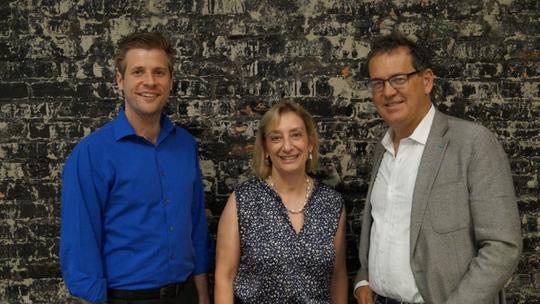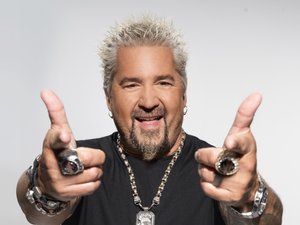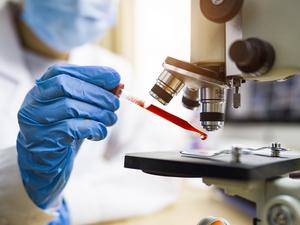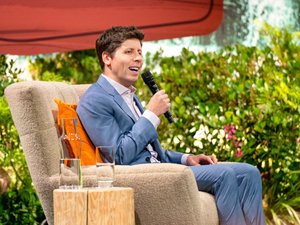
Chances are we all know someone allergic to any one of either milk, eggs, peanuts, tree nuts, wheat, soy, fish, or shellfish, which are the eight most common type of food allergens.
Close to 6 million children under the age of 18 -- roughly 1 in every 13, or 2 in every classroom -- show severe allergic reactions to at least one food allergen, according to national research and advocacy organization Food Allergy Research and Education (FARE). When including adults, this number touches 15 million in the United States alone. Accidental exposure to food allergens is a major concern, especially for parents of allergic children, and usually they are forced to resort to one of two solutions: Either eliminate the food entirely from the diet, or carry around EpiPens -- engulfed in controversy for much of last year for their outrageous prices. Regardless, both these solutions are only applicable after exposure to the allergen -- there are currently no FDA approved drugs preventing food allergies from occurring in the first place, which continue to send one affected individual to the emergency room every three minutes.
That might change soon. ClostraBio, a startup out of the University of Chicago, is developing new therapeutics targeting symptoms of -- rather than reactions to -- common food allergies. ClostraBio recognizes that microbes, comprising almost 90 percent of the human body, play a potent role in protecting the body against allergens, and it is developing therapeutics which boost this protective microbial barrier function in individuals where it has been compromised. The startup is working to develop a pill in order to administer its treatment, and currently testing for peanut allergies, with potential applications towards other allergens and protection from diseases linked to food allergies, such as eczema, asthma, and inflammatory bowel disease (IBD).
"Increased exposure to antibiotics, diets consisting more fat and less fiber, and sedentary lifestyles are all changing our internal microbial ecosystems, and [scientists] anticipate that this will cause the number of people affected by allergies to rise even more," explains Dr. John Colson, Director of Operations for ClostraBio, in an interview with ChicagoInno.
ClostraBio takes advantage of what are known as "germ-free environments" in their labs at UChicago, allowing the team to manipulate and compare test subjects -- mice -- with different variations of microbes introduced in them. Dr. Colson says the mice have shown increased sensitization to food allergens when certain bacterial populations are depleted in the gut, allowing the team to better understand which exact strains of bacteria are responsible for protecting the body against which allergens. ClostraBio's pill mimics the function of these protective bacteria and increases the natural protective functions of peptides and mucus in the gastrointestinal tract.
The ClostraBio team also found that infants, some as young as four months but with a cow's milk allergy, have a composition of their microbiome different from that seen in healthy children. But before entering human clinical trials, it wants to ensure complete safety via similar standards in its animal tests. "As we do this, we will be looking to identify right groups of human patient population for clinical trials," he said.
The startup recently won a $200,000 investment from the UChicago Innovation Fund and $40,000 from the New Venture Challenge, and is looking for additional investors to close its seed round of funding. It is also seeking to establish partnerships with larger pharmaceutical companies, as well as relationships with food science companies and patient advocacy groups.
Dr. Colson is the first full-time employee of ClostraBio, joining two renowned scientific experts and co-founders, Dr. Cathy Nagler and Dr. Jeff Hubbell. While Dr. Nagler has spent her thirty year career understanding the gut's response to food allergens, Dr. Hubbell is a chemical engineer and material scientist with 77 patents and experience developing synthetic materials for three entrepreneurial ventures based on his research. Dr. Colson, previously a postdoctoral researcher in polymer chemistry at the University of Chicago Institute of Molecular Engineering and an Innovation Fund Associate, joined the team a few months prior to its launch as a company in the fall of 2016.
"Now is a fantastic time for students and researchers to explore entrepreneurship in a university setting," he said, noting that ClostraBio works closely with both the Polsky Center for Entrepreneurship and Innovation as well as the Institute for Translational Medicine at the university to commercialize its research. "The school is very receptive and encouraging towards new discoveries of products that add value to human life."
Edit: A previous version of this article misspelled Dr. Hubbell's name. The error is regretted.








